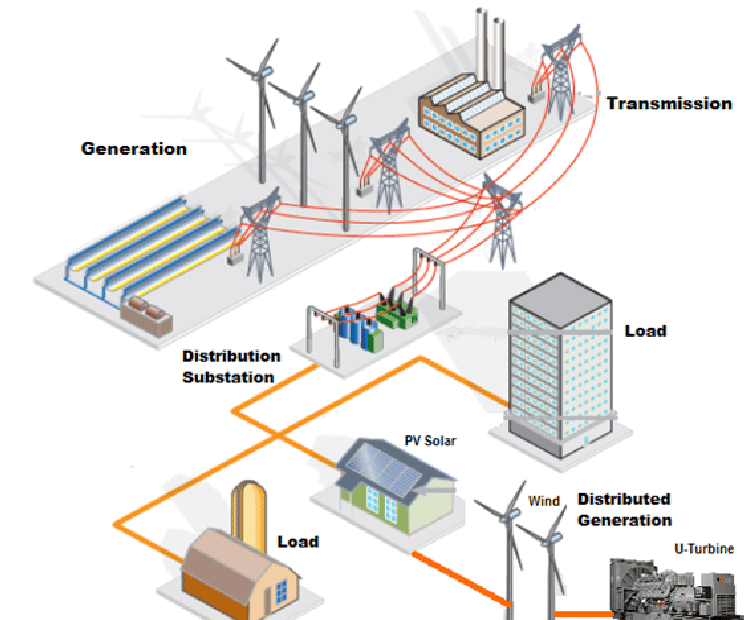What is Distributed Electricity Generation?
- Distributed electricity generation is an approach that uses small-scale sources and converters to produce electricity close to the utilization point of that power. This form of generation is commonly associated with modular and renewable-energy generators.
- Distributed generation uses decentralized small, modular power technologies to generate energy.
- It is an approach that employs small-scale technologies to produce electricity close to the end users of power.
- Travelers are looking for accommodations that meet sustainability goals, and a hotel microgrid can help meet that demand with financial help from federal incentives and participation in energy markets.
- Travelers have good reason to search for sustainable hotels. Because hotels operate 365 days a year, 24 hours a day and include refrigeration, they’re one of the highest energy and water consumers per square foot. The average guest room uses about $2,200 in energy costs annually.
- Two hotel microgrid projects that aim to meet guests’ sustainability goals are Hotel Marcel, a net-zero hotel in New Haven, Connecticut, that began operating at the end of 2021, and a Marriott hotel in Costa Rica — Marriott Hacienda Belen — whose microgrid is a first for the Marriott chain in Latin America. It is expected to be operating in the next few weeks.
Costa Rica hotel microgrid
Like the Hotel Marcel microgrid project, the Costa Rica Marriott Hacienda Belen also takes advantage of controls to reap benefits. It uses control and optimization software made by Heila Technologies. The project includes 250 kW of solar, a 360-kW/720-kWh battery storage system and a 1-MVA backup generator.
The system maximizes time-of-use rates by charging the storage at night and discharging during peak hours, said Ortuno from Green energy. This also benefits the utility — Compañía Nacional de Fuerza y Luz. The microgrid is expected to reduce electricity consumption by 17% to 20%.
Costa Rica has no load shedding programs that allow customers to get paid to isolate from the grid. The country has no ancillary services either.
“We are working with legislators to enable grid services,” said Ortuno.
Reliability is also an important benefit of the project. Several clients that Green energy is working with have experienced about one 15-minute outage per month, said Ortuno. That’s especially true in areas with long rural circuits that often experience outages because of wildlife, wildfires or heavy winds.
With their anticipated financial, environmental and reliability advantages, the two projects are expected to help pave the way for more hotel microgrids that reap numerous benefits in an energy-intensive industry. And they’re also expected to please travelers seeking to lower their carbon footprints.
Connecticut hotel microgrid
Hotel Marcel, registered on the National Register of Historic Places and a Hilton-branded hotel, has a grid-tied microgrid with load shedding capabilities that is participating in storage programs to strengthen the northeast grid.
Such hotels catch the eye of environmentally conscious travelers.
“Travelers and customers, in general, are well informed and always looking to minimize the footprint of their activities, and hospitality and accommodation is a very important part of that traveling, hence it’s natural that the customers are looking for responsible suppliers and environmentally conscious experiences,” said Fernando Ortuno, founder of Green energy, which developed the Marriott Hacienda Belen project.
Hotel Marcel’s microgrid is made up of two EPC Power PD250 storage inverters totaling 500 kW, LG Chem batteries that can provide 1,012 kWh, SMA CORE1 PV inverters for the 400 kW of solar located on a carport, hardware for islanding the system and additional hardware to drop loads, said Laura Williams, application engineer for Ageto, which provided the ARC controller.
“With a full solar array, microgrids help offset usage in hotels, especially during high usage periods during the day,” said Williams. “Hotels want to make sure the lights aren’t going off on guests. And microgrids help avoid the use of fossil fuels in backup generators.”
The system will detect an outage when it occurs and open a circuit breaker, and the battery and solar system will support critical load panels, she said.
